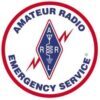EME-111
Ready Or Not??
(Revised Dec 2013)
The Atlantic Hurricane season officially opened on June 1st, 2013. In 2012 some tropical storms jumped the gun. Tropical Storm Alberto formed off the coast of South Carolina on Saturday, May 19th . Not wanting us to get lazy, nature turned around the next week and gave us Tropical Storm Beryl which made landfall in Florida on May 28th . Beryl has the distinction of being the strongest tropical cyclone to make a U.S landfall before June 1st on record.
Chirs became the first Atlantic hurricane of 2012 on June 21st , but it didn’t last long, and so for many of us here in Texas, it did not tweak our hurricane awareness. Nonetheless it was about two months ahead of the norm August arrival time of the first Atlantic hurricane.
So far in 2013 we have had Tropical storm Andrea on June 6 and Berry on June 20.
So, ready or not, we’re ‘in season’ here on the Texas gulf coast. In your forecast future look for Chantal, Dorian, Erin and more to follow.
Disaster takes many forms, not just hurricanes or tropical storms; some without prior warning or notice, such as fires or toxic spills.|
By now, you should have made your family plan, or updated your plan from last year as situations change. Make sure that your personal family plan is comprehensive and covers every member of the family. Account for the whereabouts of each member, wherever they may be. In the event your home is impacted by the event, have an alternate assembly point, with a distant backup for insurance. Reduce your plan to written format and make sure that each family member has a copy. Develop two plans: one to stay and one to evacuate.
Designate a safe room in the house in the event that you have to shelter in place. Have the necessary supplies to insure that your designated shelter has duct tape and plastic sheeting to render it air tight if needed. Particularly in the event of a chemical spill.
Designate an out of area contact person for you to notify in the event that you are forced to evacuate.
Build a kit so you can survive in place at least three to seven days. Plan for one gallon of potable water per person along with non-perishable packaged and canned food. Be sure to take into account special dietary needs such as allergies of diabetes and be mindful of the sodium content of may package and canned foods. Make sure you have a manual can opener and devise a method to heat and warm the foods selected. You should also have medications, personal toiletries, insect repellent, a portable radio, flashlight and batteries and extra clothing. Each family member should have their own personal kit.
Stay informed during an actual emergency by having an accessible source of information. AM radio KTRH 740 and KUHF 88.7 FM are the area’s primary emergency alert system stations and these are joined in our area by the news station KROL, 92.1 FM, known as “NEWS92”.
NOAA weather radio and our local designated VHF 147.000 + (Pl 103.5) repeater are also reliable sources for information.
If directed to evacuate, be sure to turn off water and electricity at their main switch point. Know your evacuation route and plan for a designated destination.
That concludes tonight’s training. Are there any questions, comments or suggested additions to this material?
Thanks, this is (callsign) clear to net control.
Send corrections, modifications, updates or suggestions to k5prs@aol.com
